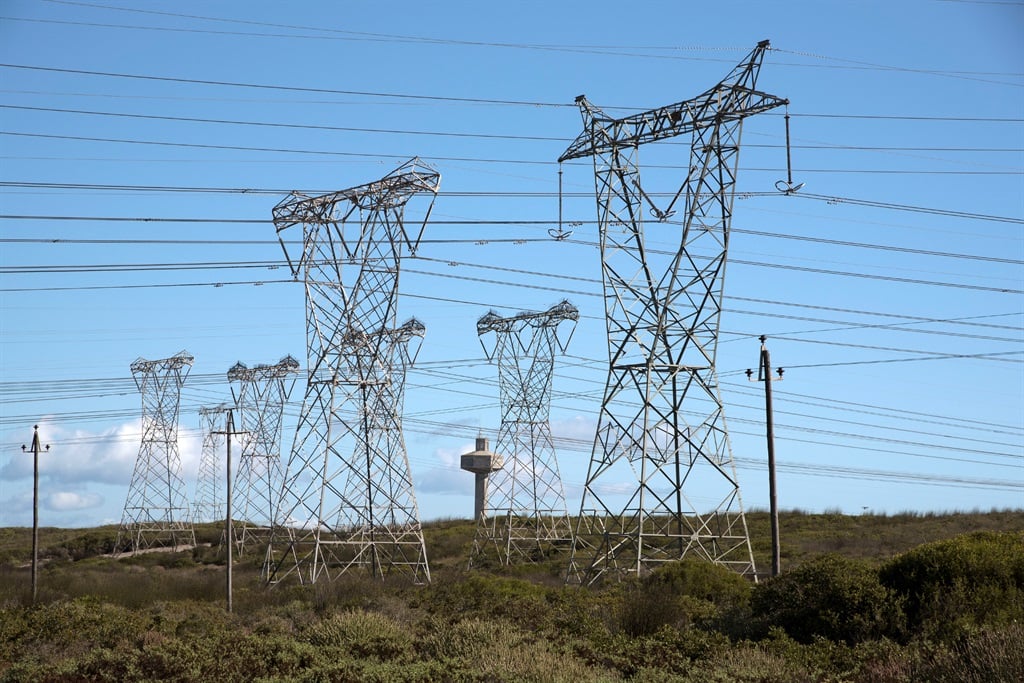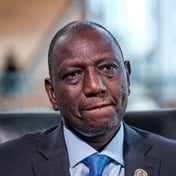
South Africa's draft Integrated Resource Plan is severely misaligned to the country's pathways for decarbonisation, exacerbates poverty while making electricity inaccessible and unaffordable, and causes health, climate and socio-economic harm, write Sibusiso Mazomba, Gabriel Klaasen and Masego Mokgwetsi.
- For climate change news and analysis, go to News24 Climate Future.
The new draft Integrated Resources Plan 2023 comes at a critical period in light of the ongoing electricity crisis and South Africa's current plans to tackle the climate crisis in line with local needs and international commitments.
The plan outlines the country's strategy for the development of its electricity sector over a specific period to meet demand.
The IRP typically addresses issues related to the mix of electricity generation sources, capacity planning, and the overall direction of the electricity system.
As the country transitions to an energy-resilient, low-carbon economy that leaves no one behind, it is crucial to balance the electricity mix with urgent challenges of load shedding and the triple interconnected crises of energy poverty, unemployment, and inequality.
In light of this, the African Climate Alliance consulted with youth from across South Africa and the continent to understand the IRP and how it impacts our electricity system as well as how youth can meaningfully influence its direction towards a just energy transition for all; and we are concerned more needs to be done.
Accessibility and youth participation
First and foremost, the draft IRP public participation process has had many issues.
It has not been sufficiently accessible, and it has not authentically engaged young people in meaningful and fully informed ways - as is our right.
That is why many young people in South Africa reject the current process and the content within the draft IRP 2023.
We view the process as one that does not follow the recommendations from the South African Presidential Climate Commission on energy pathways, nor the objectives laid out in the JET Framework, not to mention the lack of meaningful and fully informed consultation.
The 'two horizons' approach
The draft IRP has been split into two sections; how to fix load shedding and South Africa's energy future.
While we are of the view this approach is key to balancing short-term needs for energy security in supply and affordability with long-term needs for decarbonisation and sustainability, we are seriously concerned the current draft lacks meaningful scenarios to address load shedding and that the long-term pathways are not based in economic or socio-environmental realities.
The long-term pathways aimed at deploying so-called "clean coal" technologies and adding new coal to the energy grid post-2025 will not only fail to ensure security of supply but also bear a high cost of implementation, making this far from the least-cost option available.
Furthermore, if decommissioning of coal power plants is delayed - with end of design life beyond 2035 - there is no clarity on how compliance with minimum emission standards (MES) will be ensured.
In a report by the Centre for Research on Energy and Clean Air (CREA), Eskom's planned retirement schedule would already be responsible for a projected 79 500 air pollution-related deaths from 2025 until end-of-life.
The prospects under the current proposal will likely be significantly greater than this.
Exemptions from compliance with MES by the Department of Fisheries, Forestry and Environment to delay shutdowns of power stations in the name of balancing energy security cannot be given at the expense of the environment and the right to a healthy environment for individuals and communities.
A cost benefit analysis is key to ensuring that energy, health, and economic priorities are balanced with particular emphasis on health and the rights of the child.
READ | Govt energy plan fails to deal with load shedding, say climate advisors
Scaling up of gas-to-power
We do not see the need for new investments in gas and oil.
The draft IRP 2023 has baseload gas increasing from 3000 MW in IRP2019 to 7000 MW in the current draft.
This shift in distribution of priority will significantly constrain renewables due to lack of grid-maximising instruments that can help unlock grid capacity for development of more renewable energy capacity.
For example, allocation of wind power to the grid by 2030 under the scenario of scaled up gas-to-power (GtP) falls to 4 468 MW, compared with 17 742 MW in the prevailing plan.
The net effect is crowding out cheaper renewable options that are also less prone to foreign market-exchange risks and volatility, particularly in light of the looming gas supply "day zero" over the next 30 months.
It has been stated by experts and even by those who see the need for gas peaking, that beyond what we have existing, we do not need more gas exploration and production.
The Presidential Climate Commission (PCC) noted there should be no new coal and gas must be kept to a minimum of between three to five gigawatts and even then, only during times of peak demand.
Instead, we urgently need a roadmap for installed capacity of 50 to 60 GW of renewable energy such as solar, wind and hydro power by 2030 as well as batteries for storage.
Urgently taking steps to increase grid capacity is key to achieving this 2030 renewable energy target.
No new nuclear nonsense
With the draft IRP 2023's clear call and push for a 20-year extension of the current licence for Koeberg nuclear power station, and the call for new nuclear build, young people raise the concern that it is not safe - on the back of similar concerns by the Koeberg Alert Alliance.
New nuclear is not cost-effective or least-cost in any scenario, with current extension being forecasted to cost around R20 billion (noting this is a quote from years ago and does not reflect existing costs based on inflation and changes).
The concern around waste has yet to be addressed, with radioactive waste also classified as spent fuel, not having a long-term solution or plan beyond storing it near Vaalputs, a community in the Northern Cape.
Not to mention the lack of planning for the high-level waste still stored in coolers at the power station.
READ | New legal battle launched against govt's nuclear plans
Scaling up renewables for residential areas
According to Kim Cruyshaar, an independent energy consultant, the draft IRP 2023 lacks sufficient provision for state-developed renewable energy.
Scaling up the use of local renewable energy sources, especially in residential areas, has the potential to significantly reduce the strain on the current transmission and generation infrastructure.
In addition to meeting the needs of the residential sector, the integration of solar PV, wind energy, batteries, and community-level demand management has the potential to create jobs locally, promote technical skills, help people escape energy poverty, and lower greenhouse gas emissions.
Prioritising models for implementation will require working with financially stable local governments and the National Treasury, which already supports energy access through the certain grants.
This begs the question as to what the Department of Mineral Resources and Energy and Eskom have done to ensure the secured US$8.5 billion commitment from rich nations at COP26 - to aid South Africa's efforts to install more clean energy? This commitment has since grown to about US$11.6 billion.
Cruyshaar further notes the current reality of more affluent households and the private sector replacing Eskom with private renewable energy is exacerbating energy apartheid.
This because revenue collected by local authorities from electricity services is reduced to the point of service collapse.
Those who have the means have been compelled to invest in alternative energy due to persistent load shedding and unfulfilled promises of dependable electricity.
The size of private rooftop solar PV diverts resources, some of which under a cooperative energy paradigm may have gone into generating community electricity.Young people need better from SA's electricity planning
The plans set out in the draft IRP 2023 are not only rejected by young people in South Africa, but by youth consulted from across the continent.
In a recent online consultation on the draft organised by African Climate Alliance - with 60 youth present - all too well understand the decisions South Africa makes will affect their own environments, livelihoods, and energy systems.
We as youth are not anti-development in our call for a Just Energy Transition from fossil fuels.
In fact, as one of the biggest unemployed demographics in South Africa, we would call our leaders to meaningfully engage us and labour to seek ways to transition not only from fossil fuels to non-monopolised renewable energy, but also ways to transition workers in the coal value chain into renewable energy sector and other sectors of the economy in a just manner.
Beyond these points young people see the need for an Integrated Energy Plan (IEP) which is the highest-level energy planning instrument that is set to inform sub sectors like electricity in the IRP and is only set to take place in April 2024.
Why the government is clearly trying to rush the process of the draft IRP 2023, when they know that as of April 2024 the IEP is set to be put forward, is unknown.
READ | SEE | Here's where companies are building new power plants
As it stands, the draft IRP falls short in addressing urgent short-term needs to combat load shedding and scale up renewables and the long-term responsibility of the South African government to safeguard the environmental right of its citizens while also taking measures to combat the ongoing climate crisis.
Instead, it is severely misaligned to SA's pathways for decarbonisation, exacerbates poverty while making electricity inaccessible and unaffordable, and causes health, climate, and socioeconomic harm for the people of South Africa.
Youth are demanding for a more substantive IRP that will take a three-pronged approach to the framework which:
- Prioritises the cheapest electricity and system cost.
- Provides reliable electricity to end load shedding and energy poverty.
- Is line with South Africa's climate commitments as well as environmental and health considerations enshrined in Section 24 of the Constitution.
As youth representing the #CancelCoal campaign as well the wider socio-environmental justice movement in South Africa and the continent, we will not relent in the call for our voices to be meaningfully included and our future safeguarded.
In light of this, a toolkit has been created by the Life After Coal Campaign and the public is invited to submit comments on the draft IRP until 23 March 2024.
Young people, concerned citizens and civil society organisations will also be engaging in actions around the country demanding for system change and a people's energy plan.
- Sibusiso Mazomba, Gabriel Klaasen and Masego Mokwetsi are with the African Climate Alliance (ACA), a youth-led, movement-based organisation acting and advocating for Afrocentric Climate Justice. The ACA is the lead applicant in the Cancel Coal legal case challenging the South African government's plans to introduce 1500 MW of new coal-fired power electricity - the equivalent of three to four large power plants.
News24 encourages freedom of speech and the expression of diverse views. The views of columnists published on News24 are therefore their own and do not necessarily represent the views of News24.




 Publications
Publications
 Partners
Partners












